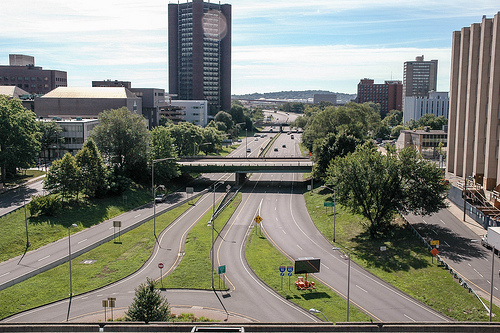AARP Hearing Center

AARP Connecticut today asked members of the Transportation Committee to support S.B. 191, which promotes pedestrian and bicycle safety and enhances penalties for drivers causing harm to “vulnerable users.”
According to AARP State Director, Nora Duncan, " AARP makes things better for society by supporting public policy that encourages safer streets for all users, regardless of their method of transportation. This proposal lays the ground work for safer roads, especially for older residents who are disproportionately killed in pedestrian fatalities."
While adults 65 and older represent less than 13 percent of the population, they represented about 19 percent of the pedestrian fatalities in 2008. Compared to their younger counterparts, an older pedestrian is 61 percent more likely to die from a crash than a younger pedestrian.
S.B. 191 adds penalties for negligent drivers that harm pedestrians and other vulnerable users. Specifically, the legislation requires drivers, who fail to exercise due care, to attend a motor vehicle operator's retraining program and perform community service. These drivers can also face fines up to one thousand dollars. AARP believes the legislation will help deter driving behaviors that put pedestrians and other vulnerable users at risk.
S.B. 191strikes an appropriate balance between the rights of motor vehicle operators and those of pedestrians, cyclists and other vulnerable users to use public roads by requiring all users to exercise due care. The proposal does not absolve vulnerable users from safely and responsibly using public roads. In fact, the bill requires a showing that the vulnerable user exercised “reasonable care” in their use of the public road, before a fine or penalty can be imposed on a motor vehicle operator.
Oregon was the first state to pass a “vulnerable users” law in 2007. Since then, at least ten states including Connecticut have considered “vulnerable user” legislation. The proposal has attracted bipartisan support in Connecticut and AARP believes vulnerable user legislation will build on Connecticut’s 2009 Complete Streets law and work done in local communities like New Haven to encourage walking, biking and other non-motorized methods of transportation.
Safety is a major reason why people choose not to walk to local destinations. In 2008, AARP conducted a survey of people age 50 and over and found nearly 47 percent felt they could not safely cross main roads close to their home. S.B. 191 could improve pedestrian safety by deterring negligent behavior that puts vulnerable users at risk of injury or death.
photo of Downtown Crossing in New Haven, CT courtesy of: ctsenatedems































































